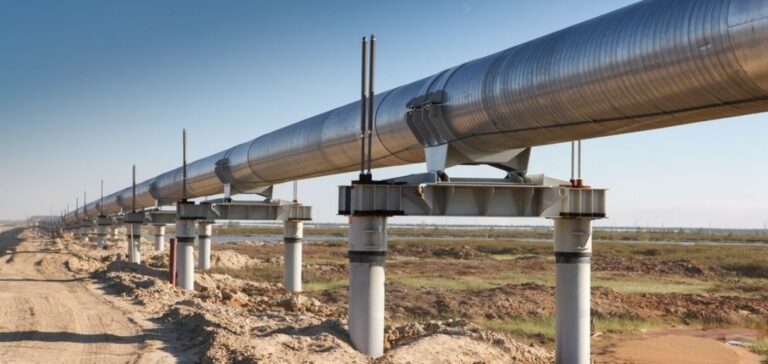Recent disruptions to Russian oil transit through Ukraine have plunged European buyers into an unprecedented energy crisis. Indeed, oil companies in Slovakia and Hungary, mainly supplied by the Druzhba pipeline, are the hardest hit by this situation. This interruption is directly linked to Ukraine’s decision to ban the transit of Russian energy resources through its territory, a decision described as political by the Kremlin.
Context and Immediate Consequences
Kremlin spokesman Dmitry Peskov said the interruption was a real crisis for Russian oil customers. Hungarian and Slovakian companies dependent on the southern branch of the Druzhba pipeline now face major logistical and economic challenges. MOL, the Hungarian energy company, owns refineries in Hungary and Slovakia which depend on this pipeline for their crude oil supplies. According to Peskov, the Ukrainian decision prevents any form of dialogue with Ukrainian transit companies. He points out that this decision is political rather than technical in nature, which further complicates the situation for the companies concerned. As a result, oil volumes from Russia via the Druzhba pipeline to Slovakia have been sharply reduced, although flows to the Czech Republic are continuing normally and those to Hungary are slightly below forecast levels.
Impact of Ukrainian Sanctions on Lukoil
In June, Ukraine introduced sanctions against Lukoil, resulting in the halting of the company’s oil deliveries to Slovakia and Hungary. The Slovak oil carrier, Transpetrol, confirmed that Lukoil deliveries had ceased, but that other Russian exporters were continuing to supply oil to Slovakia via Ukraine. Despite this interruption, Slovakia and Hungary are still receiving oil from other Russian companies, which partially mitigates the immediate impact of the crisis. Hungarian Foreign Minister Peter Szijjarto stressed the importance of Russian oil for Hungary’s energy security. He indicated that legal solutions were being explored to enable Lukoil to resume oil transit through Ukraine and Belarus. However, the stoppage of Lukoil deliveries considerably complicates the operations of Hungarian and Slovakian refineries.
Geopolitical and Economic Perspectives
The ramifications of this crisis go beyond simple supply disruptions. Companies such as Lukoil, Rosneft and Tatneft, the main Russian exporters using this route, now have to reconsider their distribution strategies. What’s more, this situation exacerbates geopolitical tensions between Russia, Ukraine and European countries, the latter already actively seeking to diversify their energy sources. Europe’s ability to maintain a stable energy supply is being put to the test, and oil prices could experience increased volatility as a result. The governments of the countries affected must therefore rapidly explore alternative solutions to secure their energy supplies. This interruption also highlights the crucial importance of energy transit infrastructure, and the need for European countries to develop alternative routes and partnerships to guarantee their long-term energy security. The current crisis could also accelerate European initiatives to reduce dependence on Russian oil. Investments in renewable energies and infrastructure projects to import liquefied natural gas (LNG) could gain priority, reshaping the continent’s energy landscape. Market watchers are keeping a close eye on how this situation develops, as it could have long-term implications for energy dynamics and political relations in Europe.






















